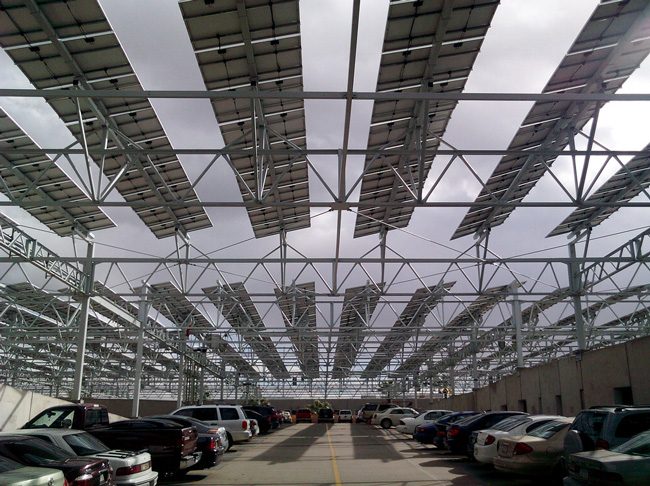
The House and Senate are set to take up proposals that would carry out a voter-approved expansion of a renewable-energy tax break, as bill language appears to have become more agreeable to solar proponents.
Gone from a House proposal (HB 1351) is a controversial provision that would have allowed the state Public Service Commission to set safety, performance and reliability standards.
The House and Senate are working on the proposals to carry out a renewable-energy constitutional amendment, known as Amendment 4, that voters approved during August’s primary election.
Susan Glickman, Florida director of the Southern Alliance for Clean Energy, said while concerns linger for some solar contractors, the House proposal is now “vastly improved.”
“The bills are closer, and it’s a good sign that we’ll bring this implementation successfully in for a close,” Glickman said.
The Senate Appropriations Committee on Thursday backed a proposal (SB 90), sponsored by Sen. Jeff Brandes, R-St. Petersburg, that is considered a more straightforward implementation of Amendment 4 than the House version.
The voter-backed Amendment 4 calls for extending a residential renewable-energy tax break to commercial and industrial properties. The tax break would be in place for 20 years. A selling point in the amendment was that it also exempts all renewable-energy equipment from state tangible personal property taxes.
Optimism about the proposed bills is tempered in part because the initial tax break voters want to expand was approved at the polls in 2008 yet wasn’t implemented by lawmakers until 2014.
Brandes said the two chambers are getting closer to matching bill language, but he said after the Appropriations Committee meeting he prefers his approach.
“I haven’t heard from one constituent that they’re having a problem with solar contractors,” Brandes said. “I’m of the position of, let’s focus this on what the voters intended it to be, which is on cutting taxes for those individuals who choose to put solar in place and to make it more of a viable option.”
A day earlier, the House Commerce Committee unanimously supported the House version, proposed by Majority Leader Ray Rodrigues, R-Estero. The bill recently drew fire for using language that the Miami Herald reported was “verbatim” from a proposal supplied by Florida Power & Light.
The proposal includes consumer-protection provisions used by Arizona, where solar energy use has been growing.
Before Wednesday’s committee vote, Rodrigues changed his proposal to include a “disclosure” requirement sought by some Amendment 4 proponents and to remove the state regulatory board oversight, which solar proponents argued was a way for giant energy companies in Florida to control the growth of solar.
Still, concerns linger over language in the House bill that solar installers say could allow “transient” companies to provide inferior products with little recourse for homeowners.
“If you’ve got a transient company coming in, with a short-term business plan that may take advantage of consumers, they could put in inferior products, make some money, and then move down the road,” said Patrick Altier, president of the Florida Solar Industries Association.
Rep. Lori Berman, a Lantana Democrat who joined Rodrigues in co-sponsoring last year’s constitutional amendment, supported the recent changes but said she hopes to see some further “tweaks” to address consumer protections when the bill appears on the House floor.
“This is something that we all want to see done,” Berman said. “And hopefully, we’ll get a good product for all Floridians.”
–Jim Turner, News Service of Florida





























Sw says
Wait a little longer
Komodo Dragon says
Exactly how is it that homeowners are going to benefit from the approval of this amendment? It was unanimously voted for by taxpaying voters yet, they seem to be focusing on tax breaks for commercial and industrial applications. Even then, the Amendment was placed for voting in August and now they are opening it up for discussion? So, what was the plan or was it an idea that we voted for? The vagueness of how government intentionally uses the ‘language’ to create unwarranted delays is evident in the broken system.
Tax breaks for homeowners will generate tons of jobs in the renewable energy sector and much more revenue for the companies who have been starved for too long giving way to the power companies lobbying for increases that are approved behind the scenes.
Sw says
NJ has more solar than we do lol
Lazaruis says
Too little
Too late
Take your time
DRedder says
Once again the government has to not only dictate how we can harvest the sun, but moves to relive big Business at the cost of the taxpaying property owners.